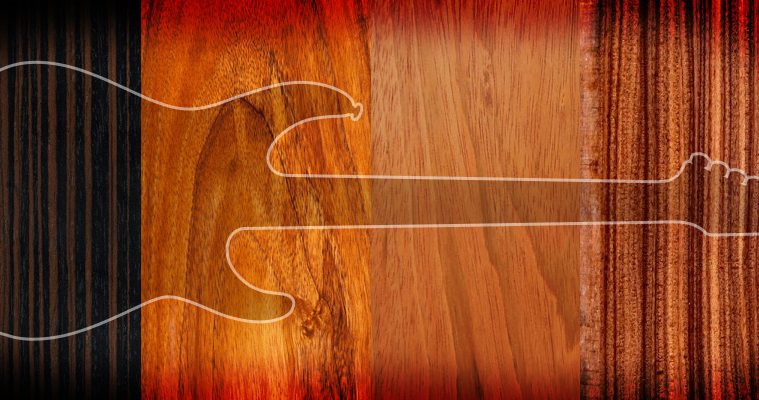ESP Guitars on late Tuesday issued a statement on its website regarding sustainable materials and CITES compliance. The statement is presented in its entirety below.
“ESP Guitars has always been a company who takes seriously our responsibility as a manufacturer of wood-based instruments. With the most recent amendments to CITES (the Convention on International Trade in Endangered Species of Wild Fauna and Flora), all instrument manufacturers face increased scrutiny to ensure that the raw materials used in their products meet the requirements as designated under this international treaty.
Particular to the current version of CITES is the use of the wood genus Dalbergia, with several species known commonly as rosewood, which has been overexploited in the wild. To remain compliant with CITES, ESP has researched a number of replacement materials for use in some of our products’ fingerboards. Note that in some cases, the replacement materials are a running change via our various manufacturing facilities, and as stock is depleted on earlier versions, the use of new materials will go into effect.
LTD “200 SERIES” & “400 SERIES” INSTRUMENTS
Moving ahead, fingerboards on this series of instruments will use jatoba to replace rosewood. Jatoba is a wood found in the Caribbean, Central America, and South America that is commonly called “Brazilian cherry” due to its appearance. Some of the current 200 Series instruments have replaced rosewood with Blackwood, an engineered wood made from sustainable pine. Both materials have been tested by ESP’s specialists for tone and aesthetic appearance, and meet all of our standards for high-quality instruments.
LTD DELUXE “1000 SERIES” and LTD SIGNATURE “600 SERIES” INSTRUMENTS
ESP is making two changes to these instrument series. First, most of the guitars in these series formerly offered with rosewood fingerboards will soon be manufactured with Pau Ferro. While Pau Ferro is colloquially referred to as Bolivian rosewood, it is not actually part of the rosewood genus that is restricted via CITIES regulations, and is an excellent, high-quality substitute for rosewood on guitar and bass fingerboards. Second, on certain models that had been previously offered with rosewood fingerboards, we are making a design change to offer them with Macassar ebony. We are also changing current models in these series being offered with African ebony to using Macassar ebony instead. This is a wood native to Indonesia, and is much less vulnerable than true Rosewood or African ebony as a sustainable material.
LTD ACOUSTIC GUITARS (AVAILABLE ONLY OUTSIDE THE USA)
For all LTD acoustic models that previous used rosewood for fingerboards and bridges, the guitars have been manufactured since January 2017 using Blackwood, and beginning in July we have started to produce them with jatoba as described above. Any model that previously used rosewood for its back and/or sides will now make use of black walnut.
LTD “10 SERIES” INSTRUMENTS
For our instruments designed for beginning musicians and to be made available at the lowest possible cost, the fingerboards of LTD 10 Series has been switched to a manufactured wood material that will act as an acceptable rosewood substitute. This is a running change that is still in progress, and we will announce the specific material at the earliest opportunity.”
We are sure that you share ESP’s commitment toward staying in compliance with the current CITES regulations, as well as our enthusiasm for helping to conserve these important natural resources for the planet.”


